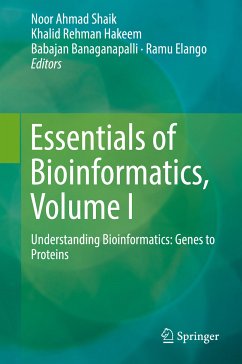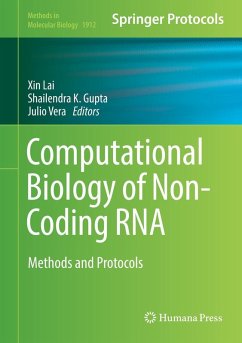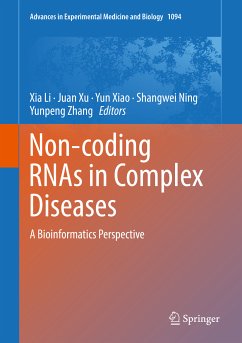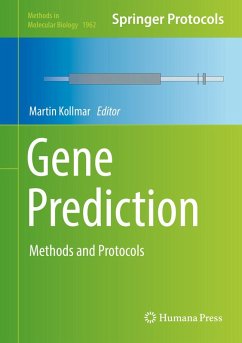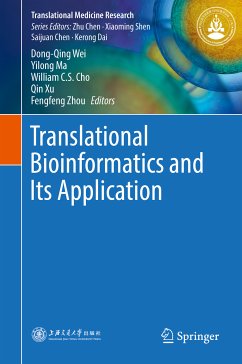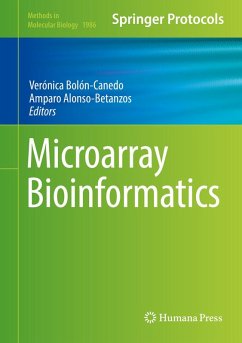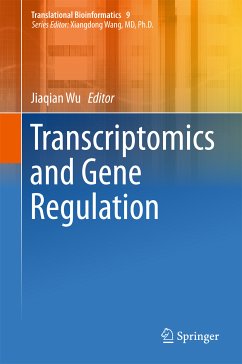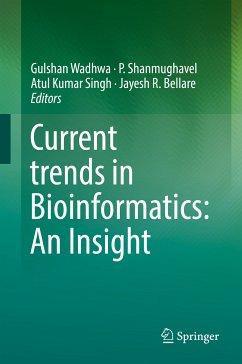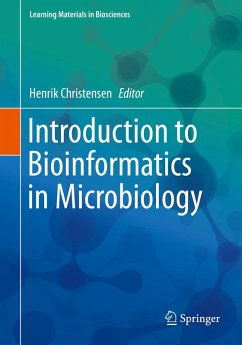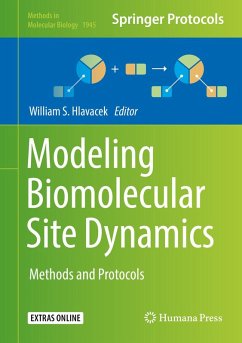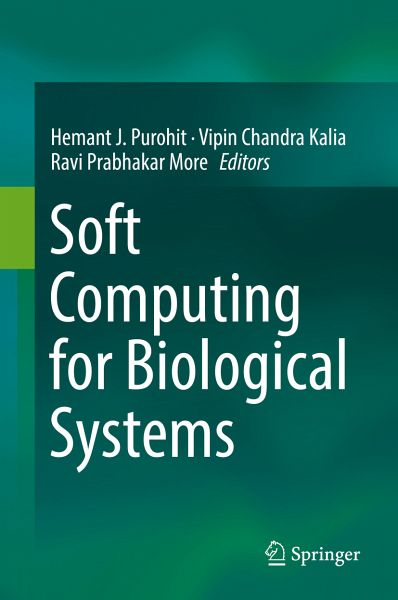
eBook, PDF
Soft Computing for Biological Systems (eBook, PDF)
Versandkostenfrei!
Sofort per Download lieferbar
Weitere Ausgaben:

PAYBACK Punkte
56 °P sammeln!





Includes well-illustrated chapters for easy understanding of methodologies
Provides the most recent research in the area of soft-computing analysis
Discusses how the insights from various computational studies can be collated and ultimately exploited practically
Dieser Download kann aus rechtlichen Gründen nur mit Rechnungsadresse in A, B, BG, CY, CZ, D, DK, EW, E, FIN, F, GR, HR, H, IRL, I, LT, L, LR, M, NL, PL, P, R, S, SLO, SK ausgeliefert werden.
Dr. Vipin Chandra Kalia is an Emeritus scientist and Ex-Chief Scientist at Microbial Biotechnology and Genomics, CSIR-Institute of Genomics and Integrative Biology, Delhi. He obtained his M.Sc. and Ph.D. degrees in Genetics from the Indian Agricultural Research Institute, New Delhi. He has been elected as: (1) Fellow of the Association of Microbiologists of India (FAMI), (2) Fellow of the National Academy of Sciences (FNASc), and (3) Fellow of National Academy of agricultural Sciences (FNAAS). His main areas of research are microbial biodiversity, genomics and evolution, bioenergy, biopolymers, antimicrobials, quorum sensing, and quorum quenching. He has published 101 papers in scientific journals such as (1) Nature Biotechnology, (2) Biotechnology Advances, (3) Trends in Biotechnology, (4) Critical Reviews in Microbiology, (5) Bioresource Technology, (6) International Journal of Hydrogen Energy, (7) PLoS ONE, (8) BMC Genomics, (9) Gene, and (10) Annual Review of Microbiology.His Google scholar citations are 4219 (as on 31st Aug 2017), and he has an h index of 36 and an i10 index of 76. He has edited 3 books: Quorum sensing versus quorum quenching: A battle with no end in sight (2015, Springer India), Microbial Factories Vol 1 and 2 (2015). He is presently the editor in chief of the Indian Journal of Microbiology and Editor of (1) PLoS ONE, (2)Journal of Microbiology & Biotechnology (Korea), (3) Applied Biochemistry & Biotechnology (USA), (4) International Scholarly Research Notices (Energy), (5) Dataset Papers in Science (Microbiology), and (6) Journal of Molecular and Genetic Medicine. He is a life member of the following scientific societies: (1) Society of Biological Chemists of India (2) Society for Plant Biochemistry and Biotechnology, India; (3) Association of Microbiologists of India; (4) Indian Science Congress Association; (5) BioEnergy Society of India, and (6) the Biotech Research Society of India (BRSI). He is also a member of the AmericanSociety for Microbiology. Dr Hemant J. Purohit is Chief Scientist, Head Environmental Biotechnology & Genomics Division. He completed his PhD from Nagpur University in 1986. He has been involved in Designing a strategy for capturing microbial diversity and exploration by interfacing culturable and DNA fingerprinting tools; Developing genomics based monitoring tools for EIA and bio-remediation process; Study of stress dependent microbial response using dynamic gene expression and its application in bioprocess optimization; Developing better insights into microbial capacities for utilization of organics through genome sequence analysis etc. He has been project coordinator for a number of high value projects. He has 225 publications to his credit. His Google scholar citations is 4843 (as on August 2017), and he has an h-index of 38 and i10-index of 113. He has supervised 25 PhD students and more than 100 students for their projects / dissertations. He is a highly distinguished scientist. He is a recipient of a number of prestigious awards, including Fogarty International Exchange Program Fellowship (NINDS, NIH, Bethesda); Commonwealth Fellowship (Department of Biochemistry, Hull University, UK), Department of Biochemistry, University of Hull, UK; CSIR Research Fellowships (JRF and SRF) etc. Dr. Ravi Prabhakar More is a Bioinformatician in the Accelerator program for Discovery in Brain disorders using Stem cells (ADBS) program at the prestigious TIFR-National Centre for Biological Sciences, Bangalore, India. His current research interest is the genetic analysis of individuals from mental illness families using the whole genome and exome sequence analysis. He completed his PhD in Bioinformatics from CSIR-National Environmental Engineering Research Institute (NEERI), Nagpur, India. He is the author of twelve research articles that have been published in well reputed peer-reviewed international journals. He has developed QR encrypted signature-based matK-QR Classifier software for plant species identification using matK gene sequences and published in BMC BioDataMining journal. For taxonomic classification of 16S rRNA sequences based on QR code encrypted signatures, he has developed a DNA BarID software tool, which is published in Journal of Computational Biology. He is the recipient of the award for outstanding project personnel in CSIR-NEERI, Nagpur India. He has analyzed metagenomes of CETP and Rumen Microbial Fibrolytic Enzymes in Indian Crossbred Cattle metagenome analysis, which was carried out to understand the taxonomic and metabolic potential using various tools and databases. On these work, four research articles are published in different journals viz. Bioresource Technology, AMB Express Journal. He was International Intern at NIBB Institute, Japan and developed combined supervised approach (Naïve Bayesian and homology) for detecting horizontal gene transfer (HGT) events in the microbial community. He did DNA Barcoding studies with respect to construction and analysis of phylogenetic trees of insect pests and published his work in well-reputed journals. He has attended a number of international conferences and published posters on different topics.
Produktdetails
- Verlag: Springer Nature Singapore
- Seitenzahl: 300
- Erscheinungstermin: 19. Februar 2018
- Englisch
- ISBN-13: 9789811074554
- Artikelnr.: 53001230
Für dieses Produkt wurde noch keine Bewertung abgegeben. Wir würden uns sehr freuen, wenn du die erste Bewertung schreibst!
Eine Bewertung schreiben
Eine Bewertung schreiben
Andere Kunden interessierten sich für


